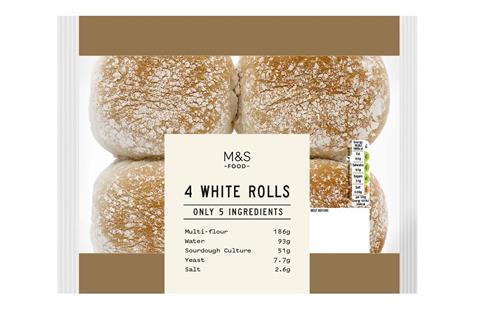
Who’d have thought that cereal with only one ingredient could cause such a stir. And yet, that is exactly what has happened when Marks & Spencer unveiled its ‘Only… ingredients’ range.
The line-up comprises three cereals – Corn Flakes, Multigrain Hoops, and Choco Hoops boasting one, five, and six ingredients, respectively – as well as a four-pack of White Rolls made with just five ingredients. Five ingredients plus the flour fortifications as required by law which, notably, have been renamed from the technical sounding ‘thiamine’ and ‘niacin’ to vitamin B1 and vitamin B3 alongside calcium and iron.
So why all the drama? After all, Shredded Wheat contains only one ingredient, but nobody is making TikToks about that. It’s because the products have launched against the backdrop of the ultra-processed food (UPF) debate, one in which M&S is appealing to consumers who are concerned about the ‘hidden nasties’ or abundance of ingredients in their daily bread and cereal.
Firstly, it’s worth exploring the changes or product development that M&S has undergone to produce the rolls. Comparing the ingredients list of the Only… Ingredients range to its standard soft white baps (the closest comparable item on its website) reveals an absence of emulsifiers, palm oil, palm fat, and ascorbic acid in the latest innovation.
| M&S Only 5 Ingredients White Rolls | M&S Super Soft White Baps |
|---|---|
|
Ingredient list: Wheatflour* · Water · Wildfarmed Wheatflour* (11%) · Rye Flour · Dried Fermented Wheatflour · Wheat Gluten · Salt · Yeast (Yeast · Vitamin D Yeast) · Wholemeal Wheatflour · Wheatflakes. *Fortified with Calcium, Iron, Vitamin B3 and B1. |
Wheatflour* · Water · Rapeseed Oil · Dried Fermented Wheatflour · Wheat Gluten · Wheat Fibre · Salt · Yeast (Yeast · Vitamin D Yeast) · Emulsifier: E471, E472e · Palm Oil · Palm Fat · Flour Treatment Agent: Ascorbic Acid. |
Another change worth highlighting is the reduction in shelf-life. On the Ocado website, the Only…Ingredients rolls are listed as having two days-plus the date of delivery while the super soft white baps have three days.
Neither of these is right or wrong – retailers and manufacturers are constantly weighing up the use of various ingredients against considerations such as shelf life, softness, cost, and more.
Speculation vs science
One positive of the UPF discussion is that consumers are taking an increased interest in what goes into their food but the discussion around the pros or cons of certain ingredients can make things difficult for food producers particularly when shoppers don’t understand the difference said ingredients make.
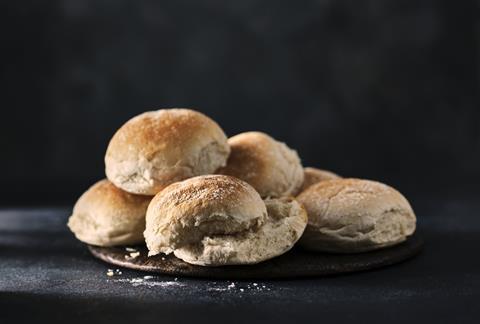
Many in the industry, particularly the larger players, are keen to fight back against the narrative that additives or processing means a food is ‘bad’ for consumers.
For example, Andrew Pyne, chief executive of the Federation of Bakers which represents the UK’s largest plant bakers including Warburtons and Allied Bakeries, believes the UPF conversation is cooking up an unhelpful storm which is leaving consumers and policy makers confused.
It’s a sentiment that was echoed at the Baking Forum in Leeds last week (20 March) where Professor Ciarán Forde from Wageningen University in the Netherlands argued that, at this stage, it’s very much a case of speculation versus rigorous science.
“Although there are a lot of calls for action and a lot of hysteria around processed foods, it’s very important to highlight that currently there is no mechanistic explanation for any of these associations [related to weight gain, obesity, insomnia etc]. You can speculate, and there has been a lot of speculation, but you can’t say definitively that in the way salt causes hypertension that ultra-processed foods cause insomnia or heart disease,” Forde said.
He highlighted that further research into the use of emulsifiers and additives was useful particularly as “our food supply contains more additives today than it ever has in human history”. However, the professor was keen to point out that the ingredients are approved for use by the relevant bodies.
“Any of the 400 additives approved for use in the food supply chain have undergone an incredibly rigorous evaluation,” Forde added. “On one hand you’ve got speculation that things like emulsifiers are causing ill health and on the other hand we have an incredible rigorous scientific approach to making sure that if these additives do enter our food supply chain, that they are safe.”
The problem is this isn’t always the rhetoric that is getting through to consumers, partially because it’s a complicated story to tell in the split second a shopper looks at your product.
“Consumers don’t trust food producers, consumers don’t trust food retailers and they don’t trust how foods are produced and formulated and processed,” Forde added.
M&S is looking to counteract that and build on its good reputation with its latest launch. The simple statement of ‘Only 5 ingredients’ on the front of pack means it’s easy for consumers who are looking for slimmer ingredients list to find the products.
Based on the Ocado reviews (which are admittedly low in numbers) the move is paying off.
“Finally no nasties”, said one review while another customer thanked M&S for “listening to your customers and giving us a roll that isn’t packed with weird ingredients and toxic seed oils”. Another added that the rolls were “very tasty and great to have just the natural ingredients that are intended for bread”, with a fourth chiming in: “These are just really good, natural white rolls which you really can’t go wrong with. I’m so fed up with seeing E this and a medley of oils, so it’s refreshing to finally know I can buy something I would essentially make myself (if only I had the time!)”.
As discussed above, the legitimacy of some of these views is questionable but there’s no denying that M&S has captured the public and industry’s attention with its latest launch. What’s more, regardless of your views on the UPF debate, it’s probably not a bad thing to respond to consumer demand for something. No doubt everyone will be watching to see who follows suite.


















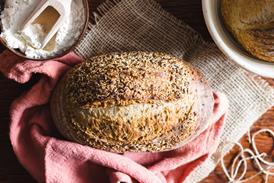


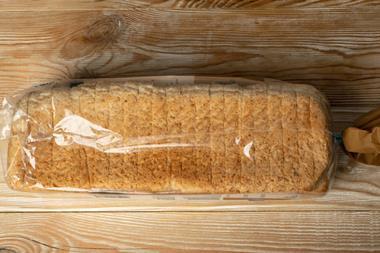

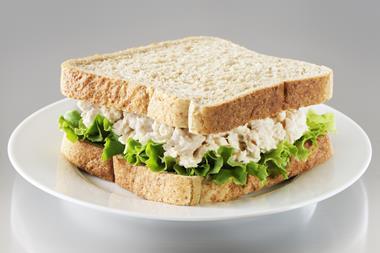


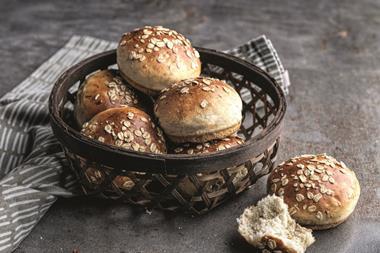
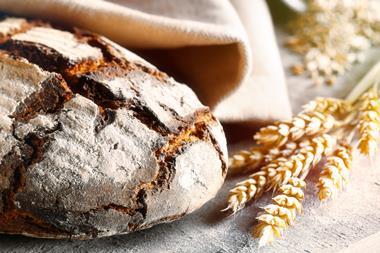


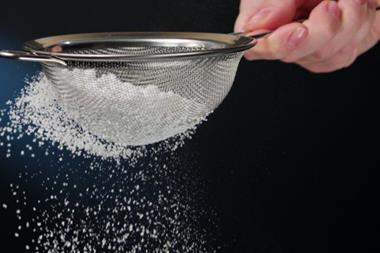

1 Readers' comment